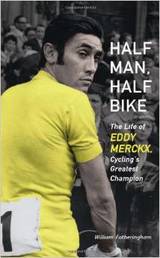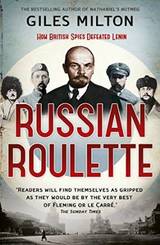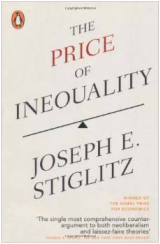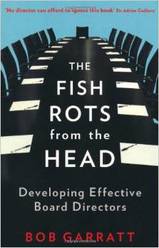|
Many commentators—academics and practitioners—agree that corporate governance is complex and difficult to get right. In the context of maximising business performance, boards must satisfy many demanding (and competing) priorities including shareholder expectations; legal and compliance requirements; the management of risk; the determination of future direction; and, the hiring (and sometimes firing) of the chief executive. Directing is a busy job, and it is one that takes time and commitment to do well. The steady stream of boardroom 'fails' in recent years (HSBC and Christchurch City Council amongst many others) and indiscretions (FIFA) suggests many boards are not doing their job as well as they need to. Why is this?
Many aspects of boards and board practice have been studied in recent decades including structure, composition and boardroom behaviour in an effort to understand how boards work and how they might contribute to performance. Independent directors have been held up as being crucial to boards maintaining distance from the chief executive and to the effective oversight of performance. Gender (and other) diversity has been promoted heavily in many quarters. The forming of a strong team through high levels of engagement and desirable behaviours has also been explored. As yet, none of the research has exposed any conclusive results in terms of increased company performance and value creation. The prevailing theory of board–management interaction (agency theory) that underpins much of the current understanding of how boards work (or should work) appears to be flawed. It assumes that management is opportunistic and cannot be trusted and, therefore, needs to be closely monitored. Yet none of the structural provisions based on the theory (independence, incentives, various structures) have been causative to increased performance, despite considerable effort over many years. Rather than continue to dogmatically pursue a flawed model, we need to move on. The goal posts need to be shifted—from a focus on compliance, structure and composition to a focus on value creation. The notion of a strategic board suggests a focus on future performance and strategy; on high levels of engagement to understand the business and the market; on critical thinking and an independence of thought; and, on robust debates which explore a wide range of strategic options (diversity of thought being considered crucial to avoid consensus thinking). Imagine what board meetings might be like if the focus changed. They'd probably last longer. Directors would read their papers before meetings, and they would be actively engaged. There may be heated discussions. Necessarily, directors would sit on fewer boards. But perhaps, if boards were bold enough to change their focus, they might become more effective. Perhaps. Here's hoping. The original version of this muse, posted in December 2012, is available here.
0 Comments
Have you ever arrived at the completion point of a major project, breathing heavily (as it were) having expended much mental and emotional (even physical) energy on the journey, only to find yourself twiddling your thumbs and wondering about the challenges that lie ahead? While some folk are anxious to move on quickly (those defined by busy-ness or a fear of idleness perhaps?), others happily use the time to read—both to relax and to recharge the mind for the journey ahead. I have been happily working my way(*) through the following books since completing the doctoral dissertation on 1 June. I commend them to you and, if you choose to open the front cover, trust you gain much enjoyment from the experience.  Why things matter to people, Andrew Sayer. Sayer shows how social theory and philosophy need to change to reflect the complexity of everyday ethical concerns and the importance that people attach to dignity.  Akenfield, Ronald Blythe. This modern classic gives voice to the inhabitants of a rural village in Suffolk, England, was an early and shining example of what an oral history could be.  Half man, half bike: The life of Eddy Merckx, William Fotheringham. A biographical narrative of cycling's greatest rider. On the bike, Merckx had an insatiable appetite for victory. Off the bike, he was sensitive and surprisingly anxious.  Russian Roulette, Giles Milton. An historical account of how British spies thwarted Lenin's attempts to destroy British India, the intrepid activities of which led to the formation of MI6.  The price of inequality, Joseph Stiglitz. Stiglitz discusses the social impacts and causes of inequality, and the economic and political impacts of what appears to be a growing problem.  The fish rots from the head, Bob Garratt. Garratt's much acclaimed book, considered a classic by many, clarifies and integrates the roles and tasks of directors, and includes a programme to help them develop the skills and approach required to do their job well.  To the edge of the world, Christian Wolmar. A fascinating history of he construction and operation of the trans-Siberian Railway, including its impact on Russian society and relations with neighbours.  One summer: 1927, Bill Bryson. A narrative of the reckless optimism and delirious energy that characterised America in the summer of 1927. (*) This is very much a work-in-progress. As of 4 July, the 'score' is four books down and four to go, and several new research and board practice ideas to boot!
The board is the ultimate decision-making body in every company—it holds the mandate to optimise company performance in accordance with the wishes of shareholders, and it is the shareholders to whom the board must provide an account for their actions (or inaction). This is a weighty responsibility, especially when you consider the plethora of internal and external factors that can affect company performance. Yet some directors seem to be more interested in collecting appointments than in adding value. Things can change in the blink of an eye. Consequently, directors need to be attentive (by guarding against distractions, tiredness and having too many irons in the fire especially) if they hope to fulfil the responsibility delegated to them by shareholders. This call might not be popular in some quarters. However, emerging research appears to suggest that attentiveness (by way of active engagement in board practices, and strategic management tasks in particular) is crucial if directors are to have any hope of making a difference to the future prospects of the company they are charged with governing. If teamwork and effectiveness in the boardroom is important to you, it is likely to be important to your colleagues as well. Does your board have an established protocol on such matters? If not, a good starting point might be to schedule a discussion at an upcoming board meeting.
One of my sporting heroes(*), Nike co-founder Phil Knight, has announced his intention to retire as chairman of the Nike board. From humble beginnings (selling shoes from the back of a car), Knight grew what can best be described as a sporting goods empire. Now, Knight wants Nike President and CEO Mark Parker to succeed him as chairman. Is this a good thing? Clearly, Knight has been instrumental to the company's success to date. But what of the future?
The appointment of a new chief executive to succeed a successful founder is a complex challenge. The question of whether Parker will remain President and CEO if and when he becomes the chairman is unknown. To vest that much power in one person is a huge call. Another factor is whether the successor measures up (we could be about to witness another Microsoft–Ballmer scenario). The alternative—an external appointment—is not without risks either (remember John Sculley's time at Apple?). Whether Parker is the best man for the job or whether the long-term interests of the company and shareholders would be better served by an outside appointment remains to be seen. Whichever way the future of Nike unfolds, the story is likely to be intriguing and, as a result, provide fodder for scholars of board practice and organisation behaviour to refine their ideas about leadership, corporate governance and value creation. (*) The first pair of running shoes I ever owned were emblazoned with the now famous swoosh. My track coach convinced me that my 1500m times would drop if I ran in shoes. I was living in the USA at the time (circa 1979), and the Nike revolution was just getting underway, so I bought two pairs—one to train in and one to race in. Both pairs of shoes were great: they looked good and I felt great wearing them. And my times? Let just say all of my PBs and best race results (on grass, cinder and Olympic-grade tracks) were achieved in bare feet!
|
SearchMusingsThoughts on corporate governance, strategy and boardcraft; our place in the world; and other topics that catch my attention. Categories
All
Archives
February 2024
|
|
Dr. Peter Crow, CMInstD
|
© Copyright 2001-2024 | Terms of use & privacy
|




